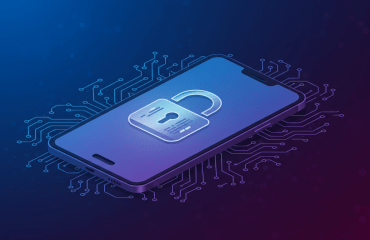advertising
Diabetes, a chronic metabolic condition that affects millions of people around the world, requires ongoing management to maintain health and prevent complications. With technological advances, mobile applications have emerged as powerful tools to help control diabetes, offering features ranging from monitoring glucose levels to monitoring diet and lifestyle.
In this article, we will explore the growing influence of these apps on diabetes management, highlighting their features, benefits, and how they are transforming the way individuals manage this chronic condition.
advertising
The Impact of Technology on Diabetes Management
1. Transformation in Glucose Monitoring
Traditional glucose monitoring through finger prick tests has evolved into more advanced methods such as continuous glucose sensors. Apps now play a key role in interpreting this data, providing a comprehensive view of metabolic health.
2. Facilitation of Self-Report
Self-reporting crucial information such as diet, physical activity and medications is a vital part of managing diabetes. Apps simplify this process, making it easier for users to record and analyze their daily choices.
3. Constant Education and Awareness
In addition to assisting with physical monitoring, apps offer educational resources, providing information about diabetes, healthy lifestyle tips and promoting awareness about the condition.
Key Features of Diabetes Apps
1. Monitoring Glucose Levels in Real Time
Apps connected to continuous glucose monitoring devices allow users to track their glucose levels in real time. Alerts can be configured to notify variations outside the desired range.
2. Food Record and Carbohydrate Count
Recording your diet is essential for controlling diabetes. Applications facilitate this process, allowing detailed diet tracking, including carbohydrate counting, helping to adjust insulin.
3. Monitoring Physical Activity
Weight control and regular physical activity are crucial components in managing diabetes. Apps help users track their activities, calculate calories burned, and plan exercise routines.
4. Medication Log and Reminder Alarms
Proper medication management is essential to controlling diabetes. Apps offer the functionality to record medications and set reminder alarms to ensure doses are not forgotten.
5. Trend Analysis and Custom Reports
The ability to analyze trends over time is valuable in managing diabetes. Apps provide personalized reports, graphs and insights that help users and healthcare professionals make informed decisions.
Top Apps for Diabetes Management
1. mySugr
mySugr is a popular app that offers glucose monitoring, food logging, carb calculator, and motivational challenges to users. It seeks to make diabetes management more fun and engaging.
2. Blood Glucose Tracker (BG Monitor)
This app simplifies glucose monitoring by allowing users to record their readings and view trend graphs. It also offers features for food and medication tracking.
3. Diabetes:M
Diabetes:M is a comprehensive app that covers various aspects of diabetes management. It includes glucose monitoring, food logging, exercise planning, and even a community to share experiences.
4. Contour Diabetes App
This app is designed to be used with Contour glucose monitoring devices. It allows recording readings, food tracking and data analysis to help manage the condition.
5. BG Monitor Diabetes
BG Monitor Diabetes offers features such as recording glucose readings, tracking food and exercise, and visual graphs for trend analysis.
Benefits and Impacts on Health
1. Patient Empowerment
By providing tools for self-reporting and ongoing monitoring, apps empower patients to play an active role in their own care, promoting self-management and informed decision-making.
2. Improvement in Treatment Adherence
Using apps can improve adherence to treatment plans. Medication reminder alerts and regular monitoring encourage consistency in self-care.
3. Collaboration with Healthcare Professionals
The reports generated by the applications can be shared with healthcare professionals, facilitating collaboration and allowing adjustments to treatment plans based on concrete data.
4. Reducing Stress and Anxiety
Easy access to real-time information and the ability to view progress over time can reduce the stress and anxiety associated with daily diabetes management.
Challenges and Ethical Considerations
1. Health Data Security
The security of healthcare data is a critical concern. Applications must adhere to strict data protection standards to ensure the confidentiality and privacy of user information.
2. Accessibility and Equity in Use
Ensuring apps are accessible and useful for everyone, regardless of factors such as access to technology and digital skills, is essential to promoting equity in diabetes management.
3. Scientific Validation of Applications
Not all diabetes apps undergo scientific validation. Users should look for apps that are backed by research or recommended by healthcare professionals.
The Future of Mobile Diabetes Management
1. Integration with Smart Devices
Integration with smart devices, such as watches and glucose sensors, promises more fluid and continuous diabetes management, eliminating the need to manually enter data.
2. Artificial Intelligence for Predictive Analysis
Using artificial intelligence for predictive analytics can anticipate trends in glucose levels, helping users take preventative action before significant variations occur.
3. Real-Time Data Sharing
Real-time data sharing between apps and healthcare professionals can improve collaboration and enable immediate interventions in critical situations.
Conclusion
Applications for managing and controlling diabetes on cell phones represent a significant evolution in the way individuals deal with this chronic condition. From real-time monitoring to detailed recording of daily habits, these tools provide a holistic approach to managing metabolic health. However, it is crucial to address ethical challenges such as data security and accessibility to ensure that all patients can benefit from these innovations. The future of mobile diabetes management promises even deeper integration with emerging technologies, empowering users to live healthier, more active lives while managing their condition effectively. Regardless of the challenges, the diabetes app revolution is shaping a new paradigm in healthcare, putting the power of diabetes management in the palm of patients' hands.



